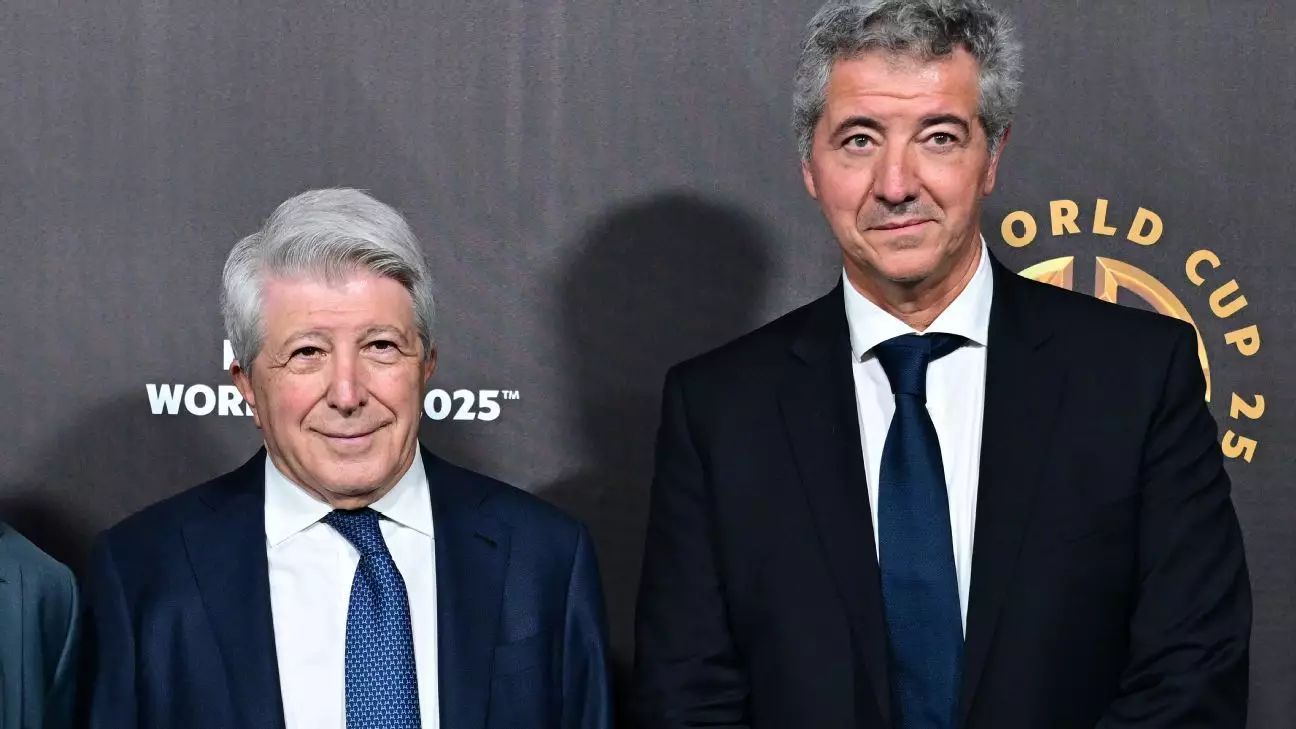The ambitious Super League project has faced significant backlash and transformation since its initial proposal, showcasing the complexities and intricacies at play in European football. In a recent commentary, Miguel Ángel Gil Marin, the chief executive of Atlético Madrid, voiced his keen frustrations regarding the latest developments tied to the Super League, claiming it has devolved into a platform for the interests of a single club rather than fostering the broader welfare of European football.
The Super League was initially touted as a transformative idea that promised to revolutionize European football by creating a closed competition elite clubs could control. However, with the rebranding into the “Unify League” – executed by A22, the company behind the Super League initiative – the focus has shifted from collective football evolution to primarily serving the interests of a few key players. Gil Marin underscored this point, asserting that the current efforts resemble a desperate clench by one club to defend its standing against the established football governance structures.
This transformation has raised questions about the motivation behind the project and the implications for the integrity of leagues. Real Madrid chief Florentino Pérez’s vocal support of the Super League during the club’s General Assembly further emphasizes the divide between the vision of some clubs and the existing competitive framework in European football. The growing concern, particularly from clubs like Atlético Madrid, advocates for a more inclusive and adaptive landscape rather than a self-serving closed-off league.
Consequences on the Football Ecosystem
The criticisms from Atlético Madrid highlight profound concerns regarding the impact of the Super League on the European football hierarchy. Gil Marin spoke candidly about his belief that change is best sought from within the established systems rather than through external challenges that potentially disrupt the existing order. He warned that the Super League’s approach threatens to undermine not just the structure of European competitions but also the financial stability that sustains many clubs, especially those outside the elite tier.
In contrast, UEFA and the European Club Association (ECA) have made strides to adapt existing competitions to create opportunities for more clubs while ensuring that higher-tier teams can enjoy financial benefits. By promoting greater inclusivity, UEFA is attempting to maintain a balance that offers competitive opportunities for clubs across various leagues, fostering growth and sustainability across the board.
Beyond the immediate concerns regarding competitive structure, Gil Marin stressed the need to protect player well-being in light of the congested schedule many clubs face this season. His proposal for capping the number of matches top players can participate in raises important conversations about the balancing act between financial imperatives and the health of athletes.
With multiple competitions stretching player stamina thin, the call for limitations serves as a reminder of the responsibilities football clubs have towards their players. The debate here transcends financial implications; it touches upon the very essence of sporting integrity and ethical obligations toward the athletes who are the backbone of these competitions.
Future of Atlético Madrid and the Super League
Despite the chaotic backdrop, Atlético Madrid finds itself flourishing within La Liga, underpinned by significant investments in player recruitment this past summer. Gil Marin’s acknowledgment of a necessary transformation within the squad reveals a focused approach to not only compete at a high level but also to adapt to the changing landscape of football.
While the ambitions surrounding the Super League have been met with valid criticism and skepticism, the future of football hinges on striking a balance between financial equity, competitive integrity, and player welfare. Atlético Madrid’s insights reflect a deeply rooted understanding of the structural challenges at play, advocating for reform that champions inclusivity rather than division. As the discussions around the Super League evolve, they underscore the necessity for a collaborative approach to preserve the rich tapestry of European football.

